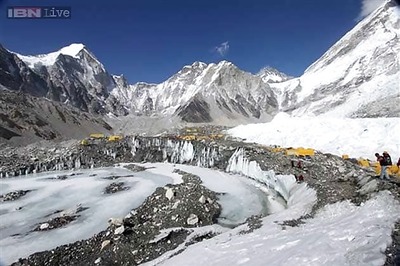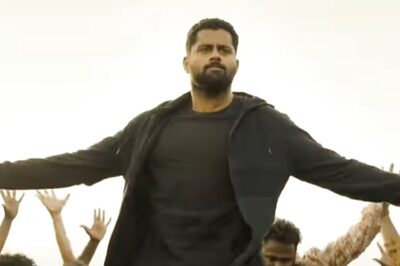
views
New Delhi: A few non-BJP-ruled states on Friday raised objections over the new methodology to be adopted in the NPR exercise but the central government defended the steps saying certain answers to be given by people are not mandatory but voluntary.
The objections by Rajasthan and a few other states were raised at a day-long conference convened by the Union Home Ministry to discuss the modalities to be adopted during the house listing phase of the Census 2021 and the National Population Register to be carried out from April 1 to September 30, 2020.
Rajasthan Chief Secretary D B Gupta said he and the representatives of a few other states raised objections to a few questions to be asked by enumerators to people during the NPR exercise.
"We said certain questions in NPR are impractical, like questions related to the birth place of parents. There are many people in the country who even don't know what was their birth place. I don't know what is the purpose of such questions and we have told the meeting to remove such questions," Gupta told reporters after the meeting.
He said the central government officials told them that answers to all such questions are not mandatory but voluntary and no one is going to force anyone to reply any question.
"They said such questions were asked earlier also and this time they have just linked with an individual's place of birth with his or her parent's place of birth. But they said answer to this question is not mandatory," he said.
Rajasthan is ruled by the Congress, which has announced its opposition to the NPR exercise. Assemblies of Kerala and Punjab have adopted resolutions announcing their opposition to the exercise.
During the meeting, presentations were given on the objectives of the census and the NPR exercises and their benefits. Also, presentation was given on the use of mobile app, which will be used in the census for the first time in its history.
The conference was inaugurated by Union Minister of State for Home Nityanand Rai and attended by Union Home Secretary Ajay Bhalla, chief secretaries and census directors of many states.
A few states were represented by principal secretary, instead of the chief secretary. No official from the West Bengal government attended the meeting, an official said.
In his inaugural address, Rai put the emphasis on the need for conducting Census 2021 and the role of the states in doing the same. He said the data collected in the census will help the country in framing policies for the welfare of the people.
The minister also inaugurated the Official 'Mascot' for Census 2021. The Union home secretary remarked on the vastness of this exercise and involvement of the state functionaries.
A few state governments, including West Bengal, have declared that they will not participate in the NPR exercise now as it is prelude to a country-wide National Register of Citizens.
Officials said the objective of NPR is to create a comprehensive identity database of every usual resident in the country. The database would contain demographic as well as biometric particulars, they said.
The notification for the house listing census and NPR exercise came recently amid furore over the contentious Citizenship Amendment Act (CAA). The ministry officials said most of the states have notified provisions related to the NPR.
The NPR is a register of usual residents of the country. It is being prepared at the local (village/sub-town), subdistrict, district, state and national levels under provisions of the Citizenship Act, 1955 and the Citizenship (Registration of Citizens and Issue of National Identity Cards) Rules, 2003.
The rules have a provision for fine of up to Rs 1,000 on those violating it. The data for NPR was last collected in 2010 along with the house listing phase of the Census 2011. Updating of this data was done during 2015 by conducting door to door survey.
While updating the register in 2015, the government has asked details like Aadhaar and their mobile number.
This time, the information related to their driving licence and voter ID card may also be gathered, the officials said, adding that PAN card details will not be collected as part of this exercise.
For the purposes of the NPR, a usual resident is defined as a person who has resided in a local area for the past six months or more, or a person who intends to reside in that area for the next six months.
The law compulsorily seeks to register every citizen of India and issue a national identity card. Assam has been excluded because the National Register of Citizens exercise has already been conducted in the state.
The demographic details of every individual are required for every usual resident: name, relationship to head of household, father's name, mother's name, spouse's name (if married), sex, date of birth, marital status, place of birth, nationality (as declared), present address of usual residence, duration of stay at present address, permanent residential address, occupation, educational qualification.
The Union Cabinet has approved Rs 3,941.35 crore for the NPR exercise. Registrar General and Census Commissioner of India Vivek Joshi made a brief presentation on the Strategy for Census 2021.

















Comments
0 comment